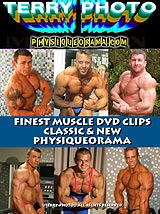5 Ways To Properly Stimulate Muscles
For Maximum Muscle Gain
By Joey Vaillancourt , author of Bones To Buff
When I first started lifting weights and training to gain muscle, I was not properly activating my muscles in the way I do today.
As a beginner, I was just interested in trying to lift as heavy as a weight as I could and I didn’t take into considerations things like proper form, mind-muscle connections or focusing on the proper muscles when doing the exercises.
Nope, all I did was check myself out in the mirror as I would attempt to curl 50lb dumbbells when I should have been really using more like 15lb dumbbells.
Now don’t get me wrong, you do want to lift heavier weights over time. After all, our muscles will only adapt if we give it a reason to adapt. But, I was impatient, young and had something to prove. I didn’t care about properly progressing in my lifts. All I wanted to do was boost my ego by lifting heavy in front of my friends.
I did gain weight and make some progress, but then down the line, my progress came to a halt.
What happened? Ill tell you what happened…the ‘beginner’s training gains’ wore off!
The only real reason I was progressing is because I was a complete beginner and even though my form, focus and technique were slightly incorrect, my body was still adapting.
This is fine when you are a beginner and the weight you are lifting is only moderate, but as you progress in your training and you get stronger you may develop imbalances and/or injure yourself.
That is why now, I always recommend my clients to focus on technique and form before even considering lifting heavier weights. It will pay off big time in the end.
The problem most people face including myself is that we are sometimes too focused on looking good or acting macho in front of others at the gym, (you know you do it J) and we are not properly stimulating muscle and recruiting all potential muscle fibers.
Muscle fibre activation is just as important if not more as the amount of weight you can lift. If you can stimulate more muscle fibre with slightly less weight and better form, then why would you sacrifice that positive factor by lifting a heavier weight with improper form and bad technique?
This is more of an intermediate to advance article on how to gain muscle by activating the muscles through the mind-muscle connection, but beginner’s can benefit by learning early on that proper form, technique and muscle activation come first and the amount of weight you can lift is a distant second.
Start to include the 5 mind-muscle connection techniques to start seeing better results when trying to gain muscle. These are powerful tools that will assist you and help you progress properly. Eventually, you won’t need to use them as much as they will just become a learned habit.
1. Think about it:
You should start to think about the muscles you are about to train while you are on your way to the gym. When you being to think about which muscle you are about to train, you send signals to your brain to begin preparing for battle if you will.
By doing this, your muscles become more receptive when it comes time to begin lifting. You are also creating stronger neural connections between your mind and your muscles.
Just silently think to yourself;
- Which muscles am I working today?
- Which exercises am I going to be performing?
This might only require five minutes of your time, but it can be the difference between a good workout and a great workout.
2. Feeling it:
After ‘thinking’ about the muscle, the other side of it is to focus on what it will feel like when you are training the muscle.
Either immediately after getting to the gym, or while warming up, start to go through some mental preparations:
- How is it going to feel after working that muscle group?
- How is it going to feel to have a shirt busting pump and blood gorging muscles?
- How will it feel when you finally make it to that special event or beach part (you can pick anything you want) and people notice that particular muscle group?
After doing this, you will start to be really motivated to work that muscle group and you will much more committed to the workout because you are holding yourself accountable.
You are reminding yourself of not only the feeling associated in the workout, but also how it will feel when you get rewarded with new muscle gain and compliments from others.
3. Muscle Activation Warm-Ups (light weights and muscle focus)
Proper warm-up is very important when you train and it should not be overlooked or skipped.
This should be part of your workout and should not just depend if you ‘feel’ like doing it that day or not.
You need to properly warm your muscles up with lighter weights first before you attempt your heavier sets.
The main benefits to warming up with a lighter weight are:
- Helps lubricate the joints by pumping blood through the muscles
- Better coordination of the movement of the exercise
- Prepares you mentally for heavier sets when you progress your warm-up properl
You don’t have to warm up for every exercise but it all depends on how you are training. If you are training one or two muscle groups per workout, then only warm up when beginning to work that particular muscle group.
You only need 1-2 warm up sets per muscle group for only 1 exercise.
Do not use a weight that will cause you to fail. The goal here is to simply warm up. It should not be an all out effort.
Generally I like to use about 50% of my 5-6 rep max and perform about 15 repetitions to warm up with. Then depending on how I am training, I might do another warm up set with a slightly heavier weight for less reps. Again, not to failure.
4. Drop The Weight and Focus On Form and Technique
Form and technique do not get as much attention as they deserve simply because they are not interesting topics to the majority of people looking to gain muscle.
Instead of focusing on proper technique, the average person would rather just concentrate on progressing and lifting heavier weights while sacrificing form and risking injury.
Although they may not realize that they are doing this.
I strongly urge you to start training smarter.
On a regular basis, you should take some time and review basic exercise descriptions for all the exercises you are currently performing in your program.
More often than not, you will pick up on small tips and information you had forgotten about that will help you get better at the exercise.
Secondly, be honest with yourself and make sure your progressions in weight increases are not causing you to sacrifice proper form when doing the exercise.
If ever you cannot complete the exercise with proper technique and execution, then I would highly suggest decreasing the load until you can progress to a heavier weight and still perform with proper form.
Over time, you will get stronger and there will certainly be less chance of you developing injuries or creating stress by improperly performing the exercise.
The priority list for muscle building should always follow; technique + form then increase in the amount of weight lifted.
5. Stay Focused
The final point on this topic is to always stay focused on your workout.
If your goal is to build muscle and completely transform your body, you cannot get distracted while you are in the gym.
That means not hitting on the women in the gym, not getting caught staring at yourself in the mirror and not having long conversations with your buddies in between sets.
You are there for a workout and nothing else. It’s ok to socialize, but just keep it in moderation and never let it distract you completely from your muscle building goals.
You really need to stay focused especially when you are attempting to beat your best lifts. Do not take this lightly.
I can guarantee if you start to implement all of these tips, you will notice more progress in your lifts and in your quest to build a more muscular body.
Remember that you can still have fun while working out, but it’s not a social occasion. At least it shouldn’t be if you are serious about building muscle.
Just be sure nothing distracts you and you should start to see some impressive progressions in your training and muscle size.
Here for you,
Joey Vaillancourt NSCA-CPT



